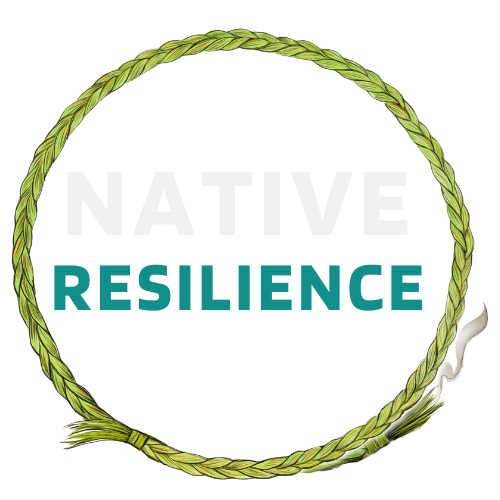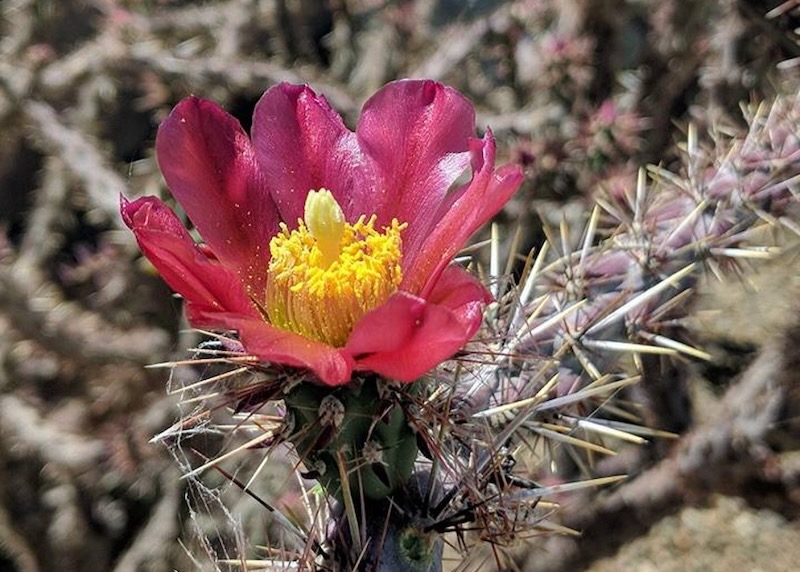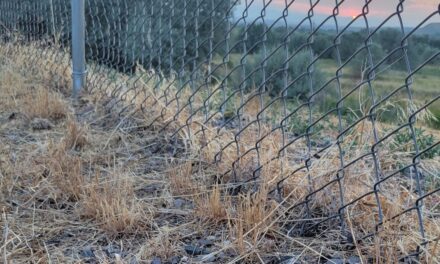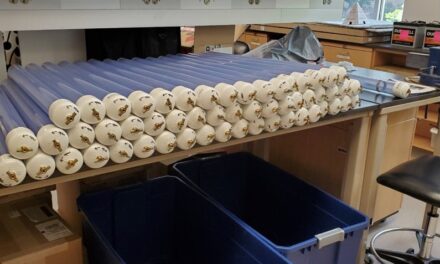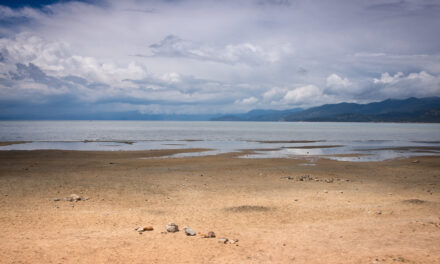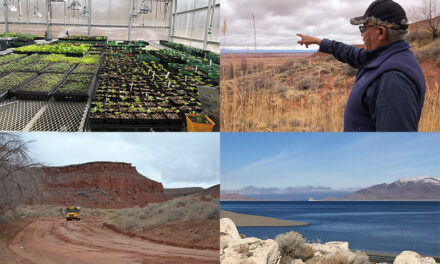Above: Ciolim in bloom. Cylindropuntia imbricata, Tree Cholla, located Baboquivari Mountain Road, Tohono O’odham Nation Reservation. Credit: Mary C. Wilson.
In early June, Native Climate welcomed three new storytellers into our 2024 Summer Climate Reporter Internship program. We are thrilled to introduce Andra Hawk-Valdez, Mary Cathleen Wilson and Shecota Nez, who are spending the summer exploring climate change impacts in their communities and sharing what they learn through multimedia journalism and poetry.
The Climate Reporter Summer Internship Program, led by Communications Coordinator Kelsey Fitzgerald, is a 10-week program aimed at providing training in journalism and multimedia storytelling. Climate Reporters produce stories about climate impacts and adaptations by Tribes located in their regions, and gain experience in developing story ideas, writing story pitches, interviewing, photography, and other parts of the reporting process.
Meet our team of reporters below – and stay tuned for their finished projects later this summer on our Climate Reporter Stories page!
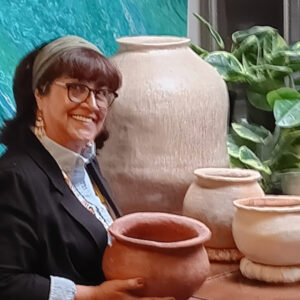
MARY CATHLEEN WILSON
Climate Reporter
Mary Cathleen Wilson, MA, a Tohono O’odham tribal member from Cedagĭ Wahia (Green Well), Sonora, Mexico, and Topowa, AZ, brings a wealth of experience and dedication to promoting climate change literacy. As a former Visiting-Editor, and Tribal Liaison for the USEPA’s Office of Pesticides-Toxics/Tribal News, she has a rich background in political science and American Indian Studies from the University of Arizona, providing her with a deep understanding of the complexities facing Indigenous communities. In her public health roles, she has orchestrated multifaceted interventions to combat cancer and cardiovascular diseases among tribal members with diabetes, fostering holistic wellness within the Tohono O’odham community. Through her extensive work in research and advocacy, Mary has demonstrated an unwavering commitment to empowering tribal communities and safeguarding their cultural heritage. As a Tohono O’odham traditional potter, she believes that climate change advocacy is crucial for protecting and preserving the environments and traditions integral to the identities and livelihoods of Indigenous communities.
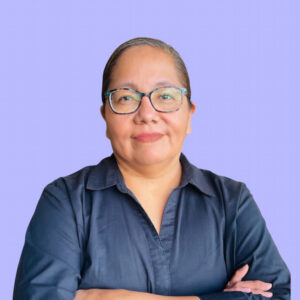
ANDRA HAWK-VALDEZ
Climate Reporter
Andra Hawk-Valdez (Tehila Pi Win-He Loves Her Woman) is Hunkpapa Lakota from the Standing Rock Sioux Tribe and grew up in Wakpala, SD. She lives in Ethete, WY on the Wind River Indian Reservation with her husband Robert and family. She is the mother of five children and grandmother of two grandchildren. Andra is currently pursuing her Master of Education degree in Curriculum and Instruction through Sitting Bull College. She received her Bachelor of General Studies degree from the University of Wyoming in 2021. She is currently a climate reporter for the DRI Native Climate Internship program. She has a passion to become a published writer of stories, short stories, and/or poetry through Indigenous history, culture, and knowledge. Andra lives by the teachings and values her parents instilled in her as a Lakota and being a good relative. She looks forward to learning about writing, bringing Indigenous knowledge forward about our climate, and sharing what she learns through the educational platform.
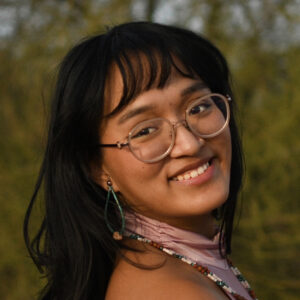
SHECOTA RAE NALWOOD NEZ
Climate Reporter
Ya’at’eeh, I was given the name, Shecota Rae Nalwood Nez, by my mother, who is from Wide Ruins, AZ. I grew up just outside of Cuk Ṣon (Tucson, AZ), bordering the Shuk Toak District of the Tohono O’odham Nation. As a Diné person growing up in between a border town and the sovereign borders of the Tohono O’odham Nation, all of which consists of their traditional lands, I understand the importance of respecting the land you occupy and appreciating the beautifully complex system that sustains the desert.
I attended Arizona State University, which occupies the land of the Akimel O’odham and Pee Posh communities, and obtained a degree in Human Systems Engineering. For my senior Capstone project, I delved into the field of Indigenous Data Sovereignty (IDSov) by conducting a literature review and interviews with Indigenous researchers. I learned that IDSov is crucial for cultural revitalization and land restoration efforts. For the next ten weeks, I am eager to explore storytelling through visual media, believing that art and science are intertwined. By the end of the internship, I hope to highlight the land I love and the communities that protect it.
